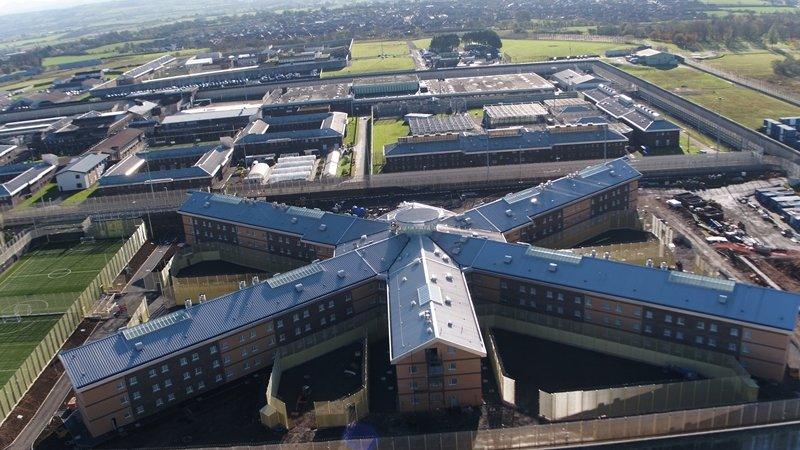Braille books for schoolgirl made by Maghaberry prisoners
- Published
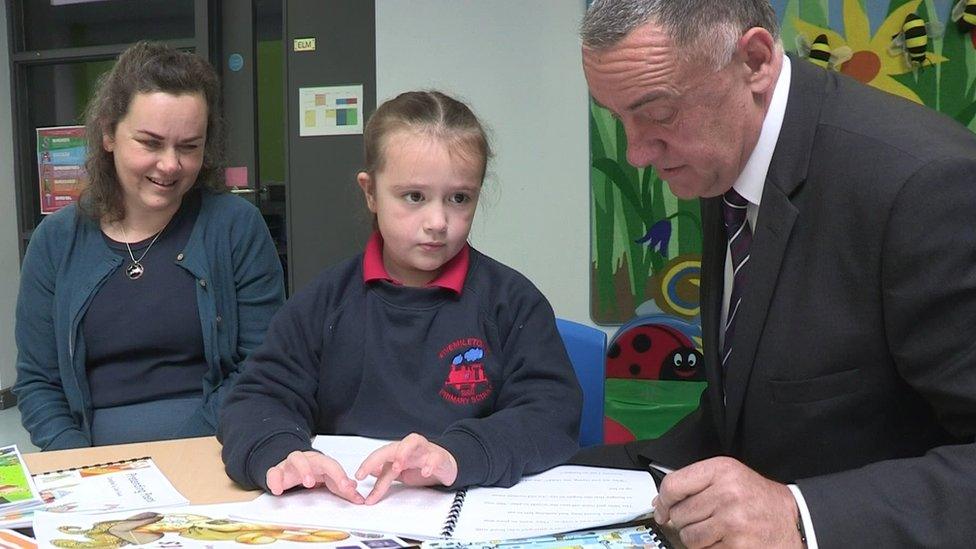
Eryn demonstrates Braille reading to Maghaberry Prison governor David Kennedy
A blind eight-year-old girl from County Tyrone is receiving help with her school work from an unusual place - a high security jail.
Prisoners at Maghaberry Prison have produced 100 books in Braille to support Eryn Kirkpatrick.
She has been given reading books, maths and English text and exercise books.
They have also made educational games she can play with her classmates at Fivemiletown Primary School.
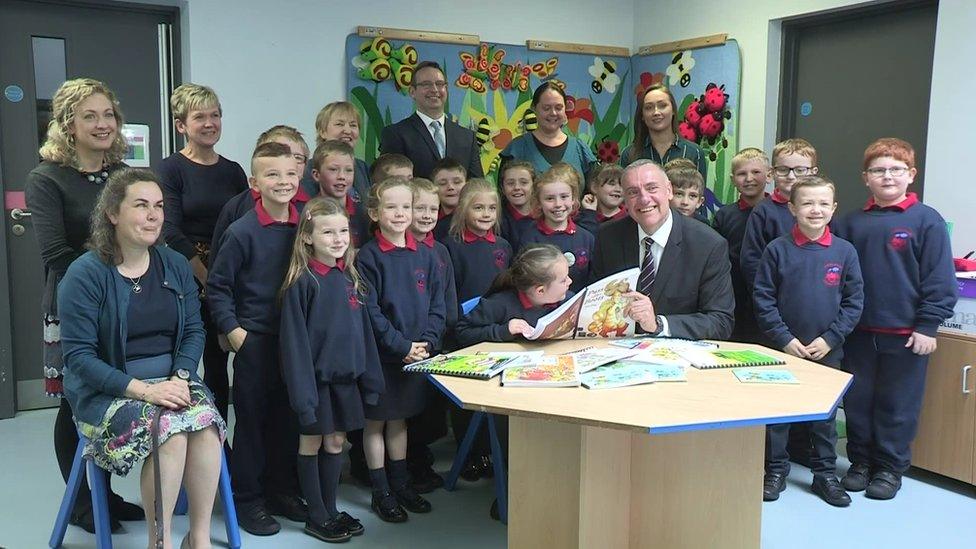
Eryn can now study from the same books as her classmates
Eryn was born with the rare condition septo-optic dysplasia, which has left her completely blind and also affects her growth.
She has her own Braille machine in the classroom, which she uses for writing, maths and spelling tests.
Maghaberry Prison governor David Kennedy visited the school to present Eryn with the latest books produced by prisoners in the Braille unit.
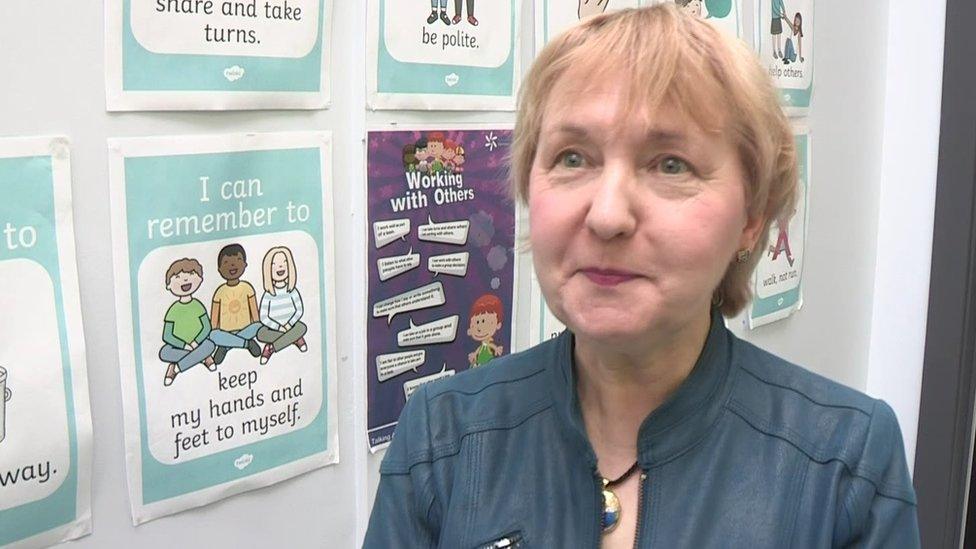
Fivemiletown Primary School principal Melanie Houston said Eryn could now access a wider range of books thanks to the Maghaberry unit
School principal Melanie Houston said the support from Maghaberry meant Eryn was now able to use the same books as her classmates.
"The quality and range of books provided by Maghaberry Prison's Braille unit has added a breadth of reading material for Eryn, which span the areas of learning and which otherwise would not have been available."
The unit has been operating for more than 30 years to help rehabilitate prisoners.
Most of the men are serving life sentences.
Working in the unit gives them an opportunity to make a positive contribution to the community.
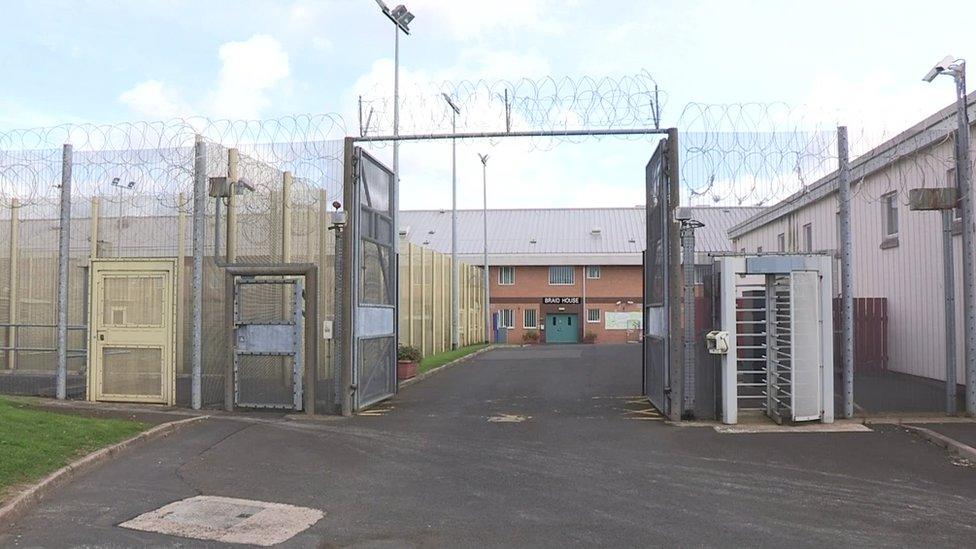
The Maghaberry Braille unit aims to help rehabilitate prisoners
Darren Otley, who runs the prison Braille unit, said the prisoners were delighted to have been able to help Eryn.
"They are all passionate about the work they are doing and especially knowing that they are able to help a young child."
The prisoners transcribe books on to a computer, which converts the text into Braille.
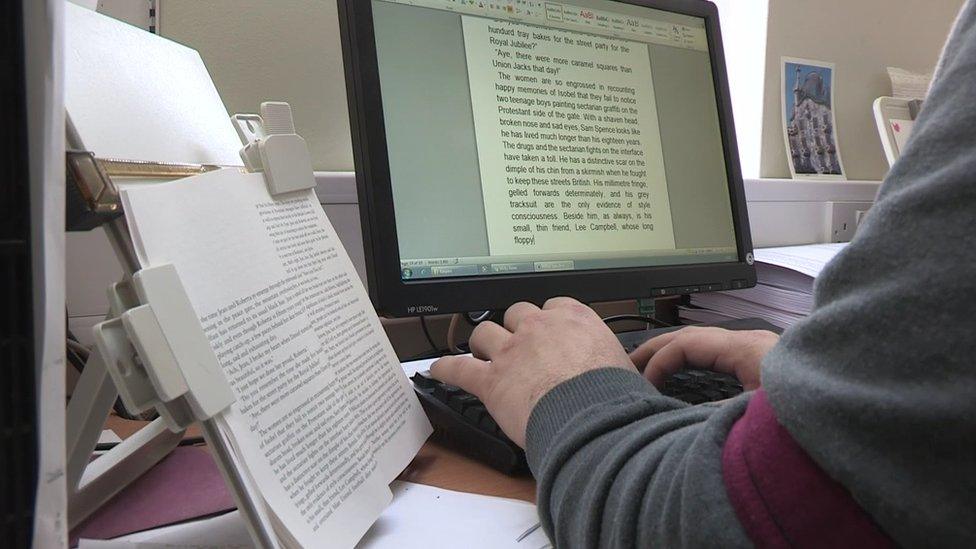
Prisoners convert the conventional script into Braille using computers
It is then printed by a machine that punches dots on to the paper.
As well as supporting individuals like Eryn, the Braille unit also provides books for hospitals, schools, charities and churches.
- Published30 April 2019
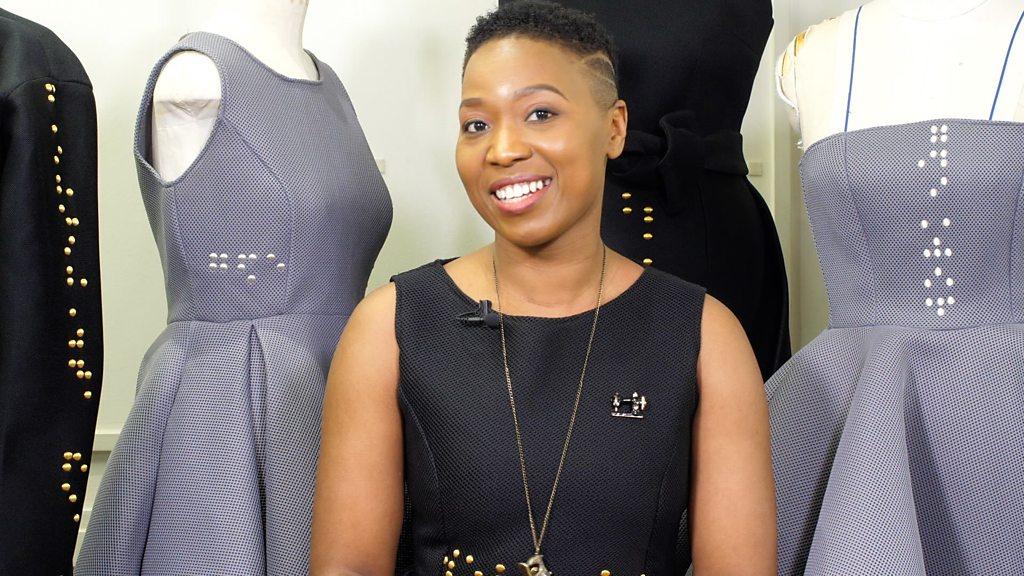
- Published7 March 2019
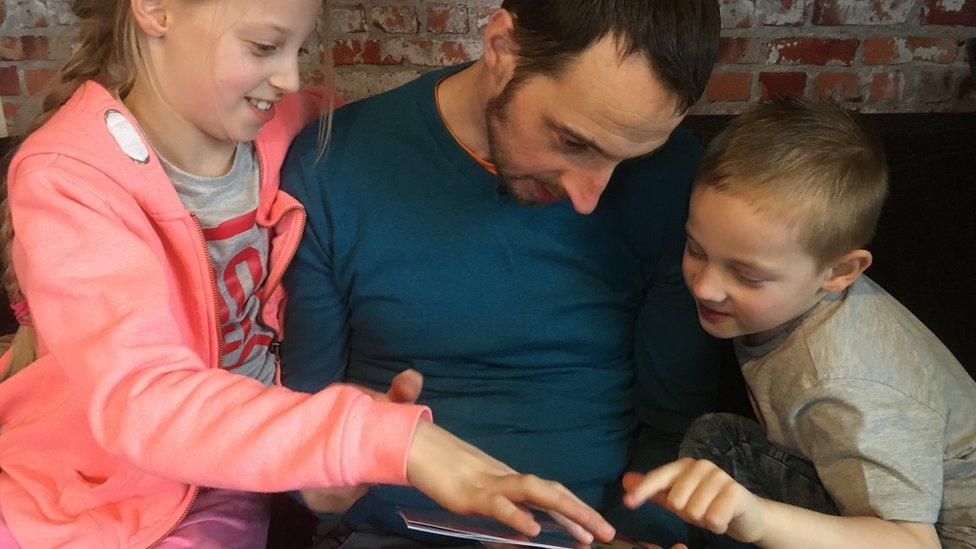
- Published27 November 2018
